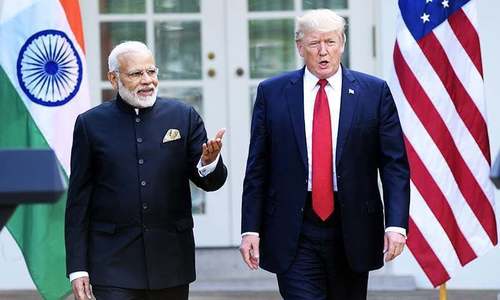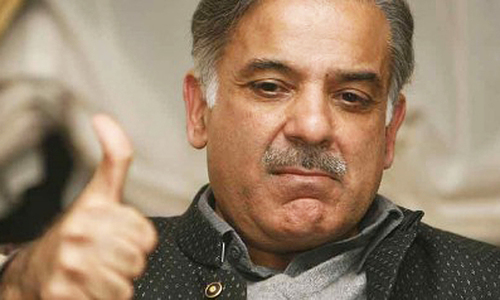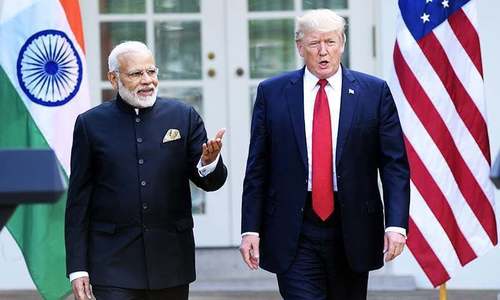Two of President Donald Trump's top officials are finally heading for talks in India this week, after Washington twice pulled the plug on the summit.
The so-called 2+2 dialogue will see Secretary of State Mike Pompeo and Defense Secretary Jim Mattis meet with their Indian counterparts on a range of key defence and trade issues.
Both sides are likely to herald on Thursday's talks — the first of their kind between the two nations — as proof positive of their rapidly growing strategic partnership in the region.
But between the friendly photo calls and soundbites, the diplomats must smooth a slew of problems, exacerbated by Trump's testy relationship with Prime Minister Narendra Modi.
The talks were first meant to be held in April and then in June but both were postponed, triggering speculation of a possible rift between the two countries amid disputes over trade.
Putting aside the interpersonal dynamics of their two bombastic leaders, the Indian and US officials must tackle two urgent issues — America's demands for India to stop buying Iranian oil, and for it to think twice about making new Russian arms purchases.
“Creative thinking will be needed in the 2+2 dialogue to overcome these challenges, which should also ensure that there are no nasty surprises and difficult issues are settled through quiet diplomacy,” Rakesh Sood, a distinguished fellow at the New Delhi-based Observer Research Foundation, wrote in an opinion piece for The Hindu newspaper.
In 2016, Washington designated India a “Major Defence Partner,” capping years of efforts to improve India-US ties under president Barack Obama.
The aim was to improve military cooperation and cut red tape to ease defence deals.
It is having some success, with the two countries set to discuss expanding the scope and complexity of joint military exercises.
India and the US are also close to signing an agreement that would ensure communications between their two militaries are compatible and secure.
America desperately wants India on side to provide a regional bulwark against China's seemingly inexorable regional expansion that has already seen it secure a long-term lease on a Sri Lankan port.
And it wants India to distance itself from Russia, notably by stepping back from decades of purchases of Russian military equipment.
Proof of US outreach can be seen in the Pentagon's recent renaming of its massive Pacific Command to Indo-Pacific Command.
Russian military deal
But India, the world's top defence importer, wants to purchase new systems from Moscow, including its S-400 long-range, surface-to-air missile system.
Under current US rules against Russia, third countries could face sanctions if they transact with Russian defence or intelligence sectors.
The Press Trust of India recently quoted an unnamed official as saying the deal was almost done, and that Delhi would be asking for a special sanctions waiver from Trump.
However last week, Randall Schriver, the Pentagon's assistant secretary of defence for Asian and Pacific Security Affairs, warned there are no guarantees.
“We would still have very significant concerns if India pursued major new platforms and systems (from Russia). I can't sit here and tell you that they would be exempt, that we would use that waiver,” Schriver told a Washington think tank.
The US is open to helping India find an alternative for the S-400, he added.
India already has bought US Apache attack helicopters and other gear, and is negotiating to buy armed drones.
Schriver said he was overall “bullish” about the prospects for deepening US-India ties.
Pompeo and Mattis's counterparts are Indian Foreign Minister Sushma Swaraj and Defence Minister Nirmala Sitharaman.
In May, Trump pulled the US out of the nuclear deal with Iran and said other countries, including India, a key buyer of Iranian oil, must stop purchasing crude from the Tehran before November 4 or face US sanctions.
The diplomats will also discuss the endless conflict in nearby Afghanistan, where the US seeks Indian help in humanitarian projects.
Pompeo is also this week flying to Islamabad to meet new Prime Minister Imran Khan, just days after the Pentagon said it plans to cancel $300 million to Pakistan over its lack of “decisive actions” in support of American strategy in Afghanistan.













































